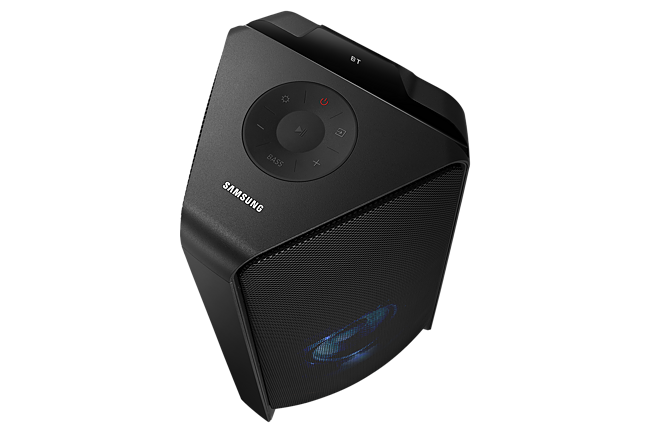Is your Samsung Gigablast experience ruined by bad sound quality? You’re not alone. Many users have noticed that despite the impressive specs of Samsung devices, the audio performance sometimes falls short. Whether you’re trying to enjoy your favorite playlist, watch a movie, or engage in a video call, poor sound quality can really kill the vibe. In this article, we’re going to dive deep into why Samsung Gigablast sound bad may be happening and what you can do to fix it.
Introduction
Sound is a crucial part of our tech experience, whether we’re streaming music, watching videos, or making calls. But what happens when the audio quality isn’t up to par? If you’ve noticed that the sound on your Samsung Gigablast seems off, you might be left wondering: Why does my Samsung Gigablast sound bad? We’ll explore the reasons behind this frustrating issue and provide practical solutions to improve your listening experience.
Understanding Samsung Gigablast Sound Issues
Samsung is known for producing top-tier gadgets with excellent visuals and performance. However, audio seems to be the Achilles’ heel for some of their products, particularly when using high-speed internet packages like Samsung Gigablast. So, why do some users face audio issues despite having premium devices? The answer lies in multiple factors, from hardware problems to software glitches. Let’s explore them.

Common Causes of Poor Sound Quality
Bad sound can be caused by several factors, and it’s not always the device’s fault. Sometimes, it’s an issue with how we use it. Here are some common culprits:
- Faulty speakers: Over time, wear and tear can damage speakers.
- Outdated software: An older version of software may not have the necessary updates to optimize sound performance.
- Incorrect sound settings: If your sound settings aren’t optimized, even a good speaker might produce bad sound.
- Bluetooth interference: Using external Bluetooth speakers or earphones can cause distortions if the connection is unstable.
Is It a Hardware Issue?
The first thing many people think when they experience bad sound is, “Is my speaker broken?” While it’s possible that your Samsung device’s hardware is to blame, it’s not always the case. Hardware problems could include:
- Damaged speakers: Exposure to moisture or dust can ruin speakers.
- Loose internal connections: Physical impacts can disrupt the internal wiring.
If the issue is hardware-related, a fix might involve repairs or replacements. But before jumping to conclusions, let’s rule out other possibilities.
Software Glitches and Their Role
Often, poor sound is due to software bugs or outdated firmware. Software can impact how your device processes audio, which means a simple update might resolve the problem.
How Can Software Affect Sound?
Think of it like a recipe: even if you have high-quality ingredients (the hardware), if the recipe is poorly written (the software), the end product won’t turn out great. Ensuring your Samsung device has the latest firmware can dramatically improve sound performance.
Network Connection Problems
One thing that sets Gigablast internet apart is its speed. But did you know that poor network connections can impact audio streaming? If your internet is unstable or has frequent drops, it can cause:
- Audio lags
- Distortions in streaming services
- Interrupted sound during calls or videos
If your sound issues mainly happen while online, it’s worth checking your internet connection.
Troubleshooting Steps for Samsung Gigablast Audio
If you’re tired of asking yourself, “Why does my Samsung Gigablast sound bad?” let’s look at some easy troubleshooting steps.
Step 1: Restart Your Device
Sometimes a simple restart can clear up glitches affecting sound quality.
Step 2: Check for Updates
Head to the settings and ensure your software is up to date.
Step 3: Adjust Sound Settings
Explore your device’s sound settings, ensuring you have the best settings enabled.
Step 4: Reset Sound Preferences
If specific settings have been changed accidentally, resetting sound preferences to default might help.
Step 5: Check for Bluetooth Interference
Ensure your Bluetooth connection is stable, or try disconnecting external devices to see if that resolves the issue.
How to Optimize Sound Settings on Samsung Devices
To get the best sound experience, you need to know how to tweak the settings. Samsung devices have various sound options, which can dramatically change the quality of what you hear.
Best Settings for Music
- Equalizer: Boost bass or treble depending on your preferences.
- Surround sound: Activate this for a more immersive audio experience.
Best Settings for Calls
- Noise reduction: Enable this feature for clearer voice quality during calls.
- Volume limits: Check your volume settings to avoid accidentally setting them too low.
When to Contact Customer Support
If you’ve tried everything and still notice that your Samsung Gigablast sound is bad, it might be time to contact customer support. Describe the issue in detail so that they can offer a more specific solution, whether it’s software-related or you need to get a hardware replacement.
The Future of Samsung Audio Technology
Samsung has already made strides in improving its sound quality, particularly with newer models that boast Dolby Atmos and other sound-enhancing technologies. The future looks promising, with likely improvements in both software and hardware that will enhance the audio experience even further.
Conclusion
Bad sound on your Samsung Gigablast doesn’t have to ruin your experience. Whether it’s a simple software fix or a hardware issue, troubleshooting these common problems can go a long way. Keep your software up to date, check your settings, and don’t hesitate to reach out to customer support if needed. With a few tweaks, you’ll be back to enjoying high-quality sound in no time.

